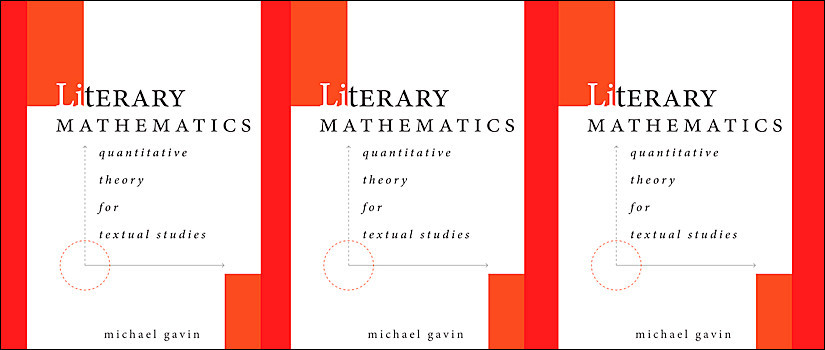New book explores the methods and value of quantitative analysis
Dr. Michael Gavin, Associate Professor of English, has published his second monograph, Literary Mathematics: Quantitative Theory for Textual Studies (Stanford UP).
Across the humanities and social sciences, scholars increasingly use quantitative methods to study textual data. This research represents an extraordinary event in the long history of textuality. Gavin’s book argues that quantitative methods for the study of textual data offer powerful tools for historical inquiry and sometimes unexpected perspectives on theoretical issues of concern to literary studies. Literary Mathematics challenges readers to consider why corpus-based methods work so effectively and asks whether the successes of formal modeling ought to inspire humanists to reconsider fundamental theoretical assumptions about textuality and meaning.
Embracing the expressive power of mathematics allows scholars to add new dimensions to digital humanities research and find new connections with the social sciences. Student-friendly and accessible, Gavin’s book advances this argument through case studies drawn from the Early English Books Online corpus.
A chorus of critical praise has accompanied the book’s publication:
"Literary Mathematics is a new kind of book. A project of this scope is guaranteed to be controversial, but everyone interested in literary history will find it worth their time."
—Ted Underwood, University of Illinois Urbana-Champaign
"This book is a timely, well-reasoned, and readable contribution to digital humanities and literary studies. Literary Mathematics will help guide the next generation of researchers in quantitative approaches to historical and literary texts."
—Mel Evans, University of Leeds
"Theoretically, historically, and critically informed, this is the most ambitious, and practical, book I know on the computational revolution in literary studies."
—Jonathan Hope, Arizona State University
